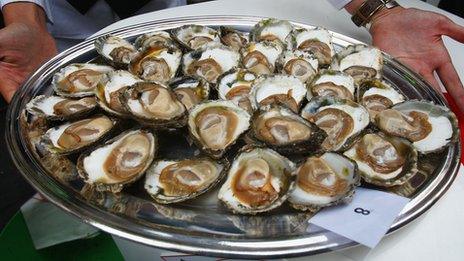Shellfish experts want to shake off oyster 'snobbery'
- Published
- comments
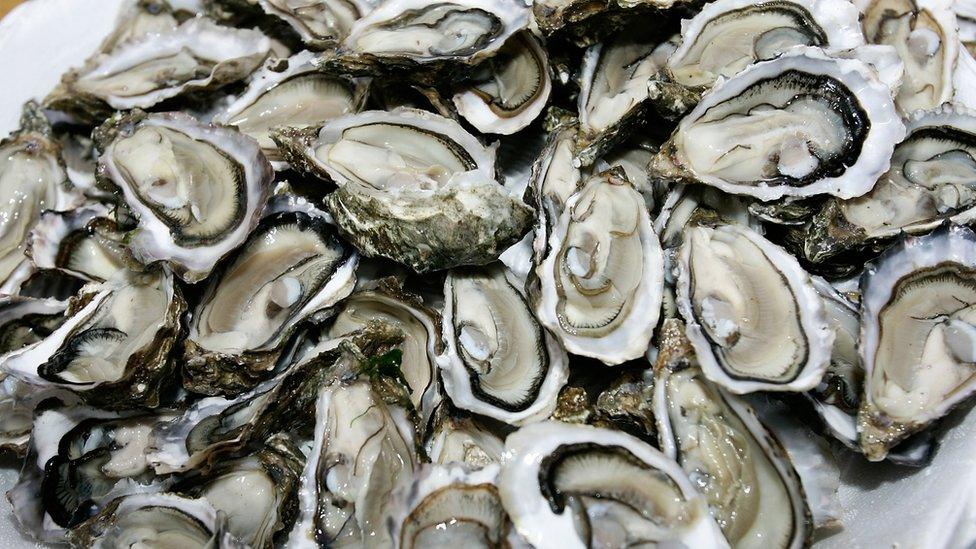
International experts gathering in Wales want to help shake-off "snobbery" associated with eating oysters.
The four-day symposium being hosted by Bangor University, external will focus on boosting sustainable production and consumption of the molluscs.
The oyster industry across the UK had virtually collapsed by the start of the 19th Century due to over fishing.
But there is a resurgence in oyster interest, with other molluscs landed in Wales alone worth over £10m a year.
"At the moment it is a very small industry across the UK, but that could change," said Dr Jon King, from Bangor University's School of Ocean Sciences, who is co-ordinating the conference.
"There was a strong European oyster fishery going until the end of the Elizabethan period, but, by 1850, they were farmed out.
"What we want to see now is a sustainable expansion of the oyster industry, not just in Wales, but all around Europe."
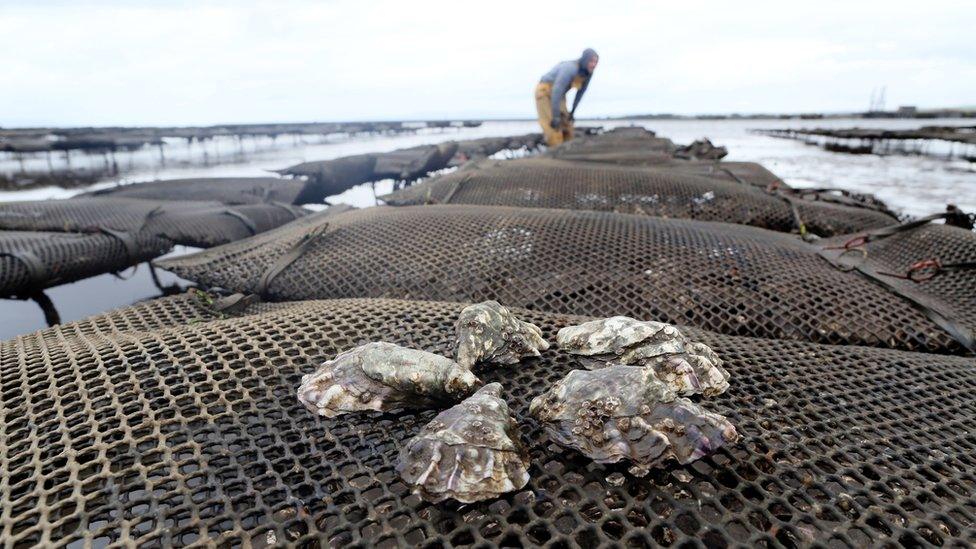
Ireland has seen demand for its oysters in China explode
At the moment, an estimated 90% of all the world's oysters are farmed and fished by China, which harvests 58 million tonnes of molluscs every year.
The demand for oysters in China has seen producers in Ireland struggle to keep up, with exports worth 2m Euro (£1.8m) in 2016 - up from just 500,000 Euro (£455,900) in 2014.
Currently, Wales has just one oyster farm, with Pacific rock oysters taken from the Menai Strait.
There is also a "proof of concept" project under way in Swansea to restore the native oyster beds to Mumbles.
Across the UK, it is estimated that no more than about 1,500 tonnes of oysters are harvested every year.

The Menai Strait is one of the only places in Wales were oysters are farmed
Dr King accepts that in Wales and the rest of the UK, part of the problem is image, as oysters are seen as an expensive delicacy that go hand-in-hand with fine wines and champagne.
However, that was not always the case. In fact, the reason oyster beds around the British Isles were farmed out was because of their popularity with the working classes.
Victorian favourite
As the character Sam Weller notes in Charles Dickens' 1836 novel The Pickwick Papers "poverty and oysters always seem to go together".
"The poorer a place is, the greater call there seems to be for oysters. Look here, sir: Here's a oyster-stall to every half-dozen houses. The street's lined with 'em."
One area the seventh Oyster Symposium will examine is how attitudes can be changed, focusing especially on cooked oysters - rather than a more traditional raw 'out-of-the-shell' experience.
"There are a lot of people who simply don't like the idea of eating raw oysters," said Dr King.
"By developing a wider market for cooked oysters and oysters destined for the pot, it extends the commercial range for the producers, both geographically and in terms of 'shelf-life' of the product, adding value to a basic foodstuff."
As part of the conference, delegates from across the world have been invited to bring their own recipes for cooking oysters, which will be turned into a book celebrating the shellfish.
Dr King said: "Raw with champagne is not the only way to eat your oysters - and we want to move away from some of the snobbery of that."
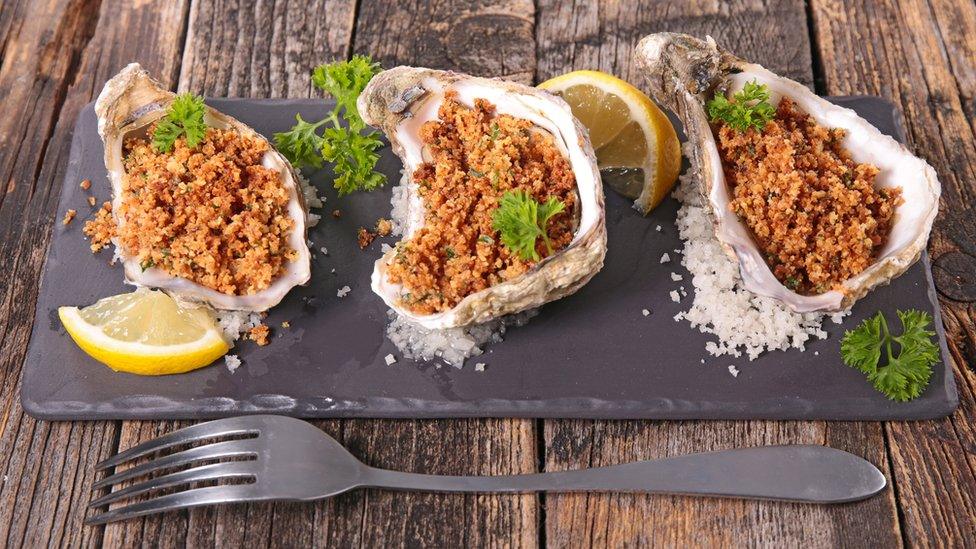
Not raw - and not with champagne - should we rethink our approach to oysters?
- Published18 October 2014
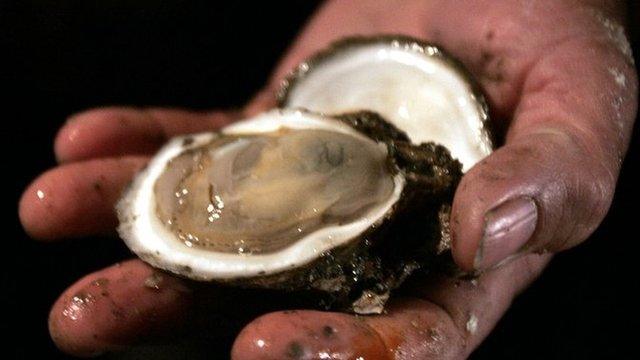
- Published10 September 2013
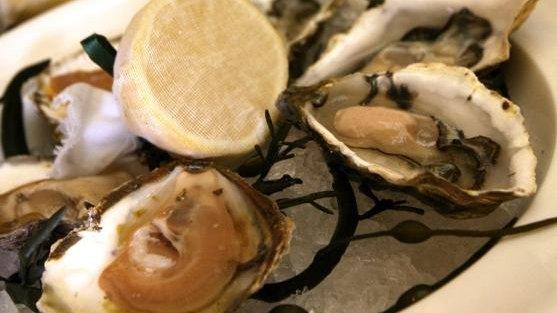
- Published23 October 2012
